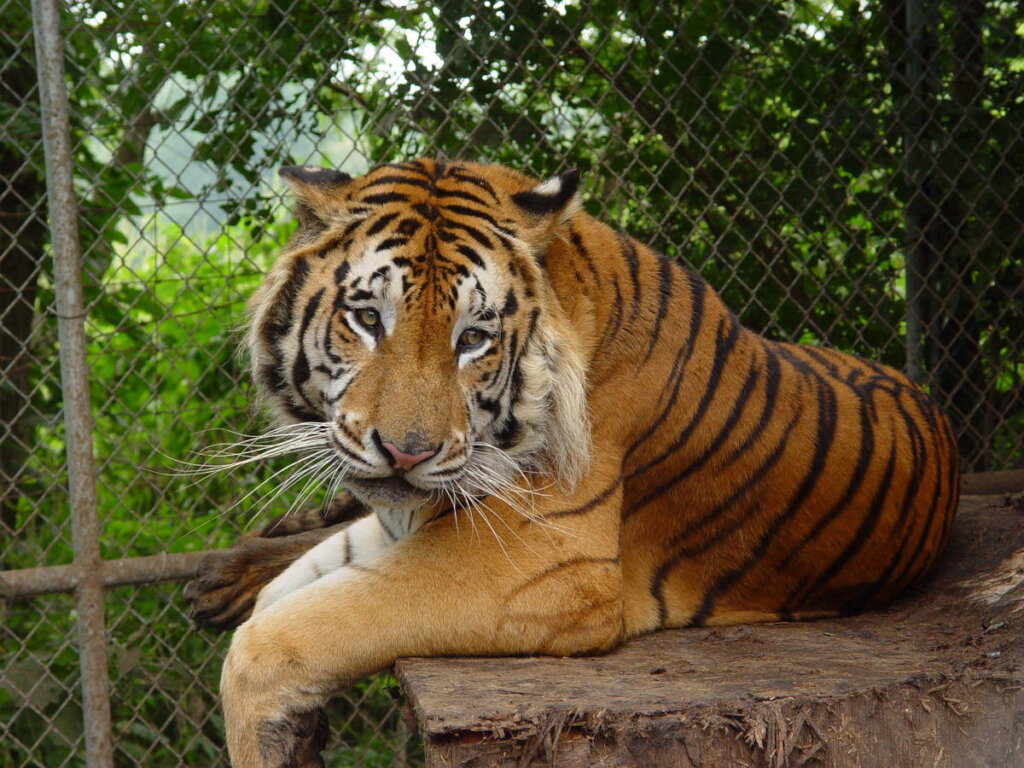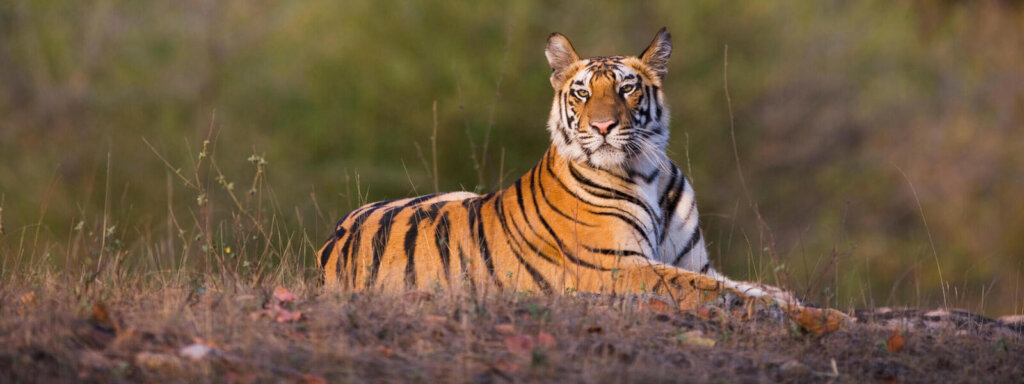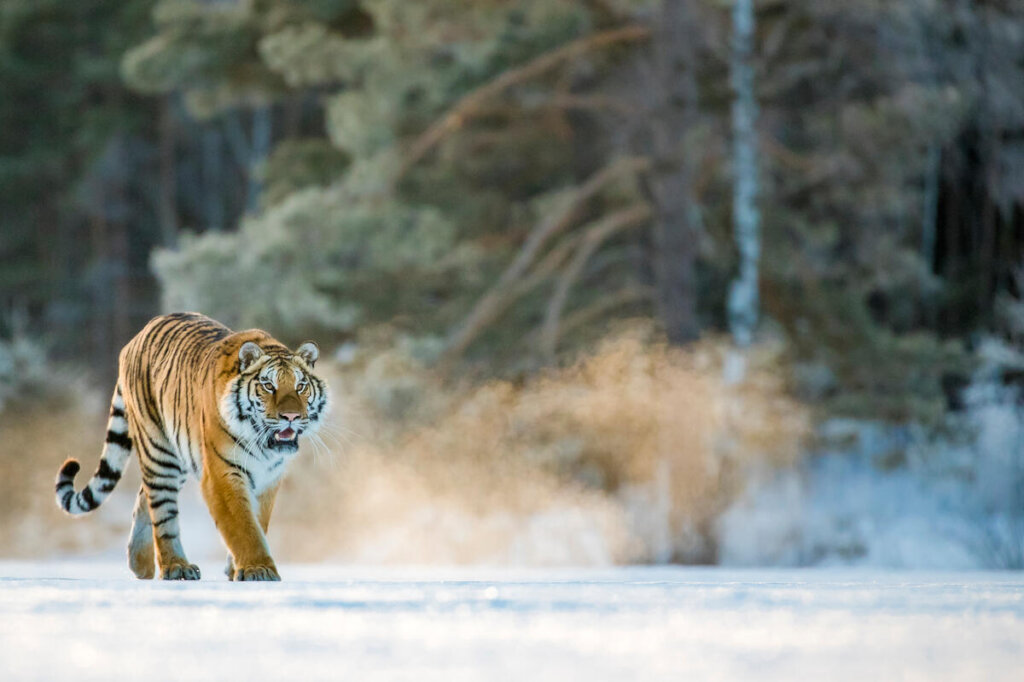By Jenna Bailey | Associate Program Officer
The US Captive Tiger Problem
Did you know that there are more captive tigers in the US than there are remaining in the wild? There are an estimated 5,000 captive tigers in the US, which outnumbers the estimated 4,500 that remain in the wild.
US tigers and other big cats have been previously regulated by a patchwork of federal, state, and local laws. This has contributed to only an estimated 6% of the US captive tiger population residing in zoos and other facilities accredited by the Association of Zoos and Aquariums. The vast majority live in people’s backyards, roadside attractions, or private breeding facilities. Many of these private tiger owners aren’t properly trained to care for wild animals, making the captive tigers vulnerable to mistreatment and exploitation. This patchwork regulation has also allowed tigers to easily slip off the radar and into the illegal wildlife trade.
Big Cat Public Safety Act
In a major win for tigers, the Big Cat Public Safety Act was officially signed into US law on December 21st, 2022. This legislation will allow for more centralized oversight of US captive tigers to ensure that they can’t feed the illegal wildlife trade for their parts and products – a major threat to big cats in the wild. The legislation will also require facilities to obtain a federal permit for big cat ownership, ensuring the welfare of captive big cats and public safety. These actions will give the United States more information about who owns captive tigers, when they are sold or traded, and what happens to their parts when they die. By requiring a permit for ownership, the US will get a much better understanding of the state of captive tigers and will hopefully be able to decrease the demand for wild tiger parts and products.
“With the passage of the Big Cat Safety Act, Congress has sent a global message that the US stands firmly against wildlife crime and on the side of tiger conservation,” said Leigh Henry, director of wildlife policy at WWF. “This legislation will provide stringent protections and oversight for captive tigers and other big cats, as well as the communities in which they are being held.”
The Beginning of a Global Trend
While this is a huge win for captive tigers in the US, tigers are still facing major threats around the world. The number of tigers in tiger farms across East and Southeast Asia has escalated rapidly in recent years, with 7,000-8,000 tigers reportedly being held in large facilities. We are using the momentum of the passage of the Big Cat Public Safety Act, to call on other governments to commit to phasing out tiger farms and instituting clear bans on the trade of tigers and their parts and products, from any source. While the situation in the US is different than that in Asia, it is critical that the US cleans up our own backyard to ensure our tigers don’t contribute to illegal trade and ensure that the US can continue to be an effective and influential voice in tiger conservation.
“As the Year of the Tiger comes to a close, there is no better time for the US government to act on this longstanding conservation issue,” Henry said. “But we cannot end illegal tiger trade alone– we need other countries to join us, particularly China, Lao PDR, Thailand, and Vietnam, whose tiger farms are helping to fuel the illegal trade in these big cats. Our hope is that stricter regulation of captive tigers in the US will be just the beginning of a global trend – and a secure future for tigers in the wild.”
How You Can Help!
Thanks to supporters like you, WWF has accelerated tiger monitoring, habitat protection, anti-poaching efforts, and has been able to advocate for policy changes such as the Big Cat Public Safety Act to save the beloved tiger species. The fight is not over! By supporting our projects, and sharing them with your family, friends, and colleagues, you can make a difference in our work and set an inspiring example that together, change is possible. Thank you!
Links:
By Jenna Bailey | Associate Program Officer
By Jenna Bailey | Associate Program Officer
Project reports on GlobalGiving are posted directly to globalgiving.org by Project Leaders as they are completed, generally every 3-4 months. To protect the integrity of these documents, GlobalGiving does not alter them; therefore you may find some language or formatting issues.
If you donate to this project or have donated to this project, you can receive an email when this project posts a report. You can also subscribe for reports without donating.
Support this important cause by creating a personalized fundraising page.
Start a Fundraiser

